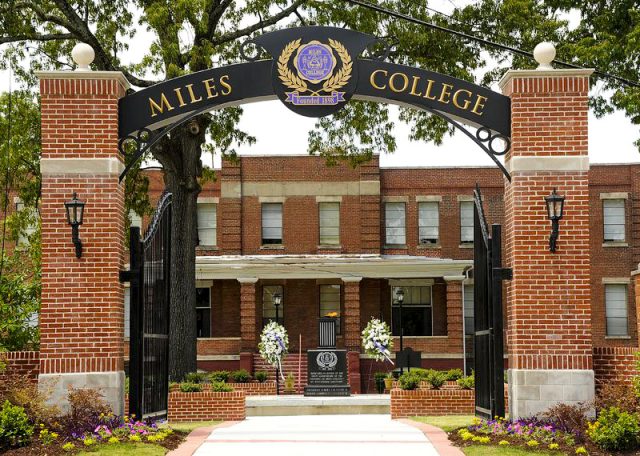
By Barnett Wright | The Birmingham Times
President Donald Trump last week announced a new White House Initiative on HBCUs, and some of Alabama’s 14 HBCUs are in a state of uncertainty as they scramble to secure their futures.
The new initiative will “prioritize private-sector partnerships, institutional development, and workforce preparation in high-growth industries like technology, health care, manufacturing, and finance.”
The goal is to foster research, improve affordability and retention and “building pipelines for students to attend HBCUs.”
The initiative includes an annual meeting and a board of advisors within the Department of Education “from philanthropy, education, business, finance, entrepreneurship, innovation, private foundations and current HBCU presidents.”
Miles College President Bobbie Knight said in a statement her institution “is not confused about the intent or importance of the executive actions regarding HBCUs.”
“We fully recognize and appreciate the efforts of the current and past administrations to support and invest in our institutions,” she said. “We acknowledge the establishment of the White House Initiative on HBCUs, prioritizing partnerships, workforce development, and critical industries such as technology, health care, manufacturing, and finance.”
Knight added that “education is not a partisan issue, and the success of HBCUs should be a national priority. When we thrive, America thrives. We appreciate both orders and actions supporting our nation’s HBCUs and look forward to working with the current administration to advance growth and sustainability for future generations.”
The Thurgood Marshall College Fund (TMCF) expressed appreciation for the executive order, stating that it reaffirms President Trump’s support for investment in HBCUs. TMCF President & CEO Dr. Harry L. Williams emphasized that the order should serve as a call-to-action for corporations, foundations, and lawmakers to support HBCUs and their students.
Trump has sent mixed messages to HBCUs, who focus on educating Black Americans but who also support a wide array of research, scholarship and jobs.
Recent executive orders banning diversity, equity, and inclusion initiatives and pausing many avenues of federal funding have left some HBCU administrators in a difficult position.
HBCUs contribute billions to local economies and produce influential leaders. And they rely heavily on federal funding, both for research and teaching and for student support. An estimated 70 percent of students at HBCUs receive Pell grants and are considered financially high-need, according to the United Negro College Fund.
The U.S. Department of Agriculture temporarily canceled and then reinstated a $19 million scholarship program for HBCUs. The cancellation jeopardized the financial status of dozens of Alabama students.
The expected lifetime earnings of 2021 Alabama HBCU graduates is more than $15 billion, according to the United Negro College Fund’s HBCU Impact Report. Local and regional economies gained $1.4 billion from HBCUs in 2021. More than 13,000 jobs were created on and off campus.
Among the Black American population in the country, 40 percent of Congress, 50 percent of lawyers and 80 percent of judges graduated from an HBCU, according to the Thurgood Marshall College Fund.
A 2023 federal per-student funding analysis showed Alabama land-grant HBCUs were underfunded compared to other land-grant schools by more than $500 million, according to Inside Higher Ed.




